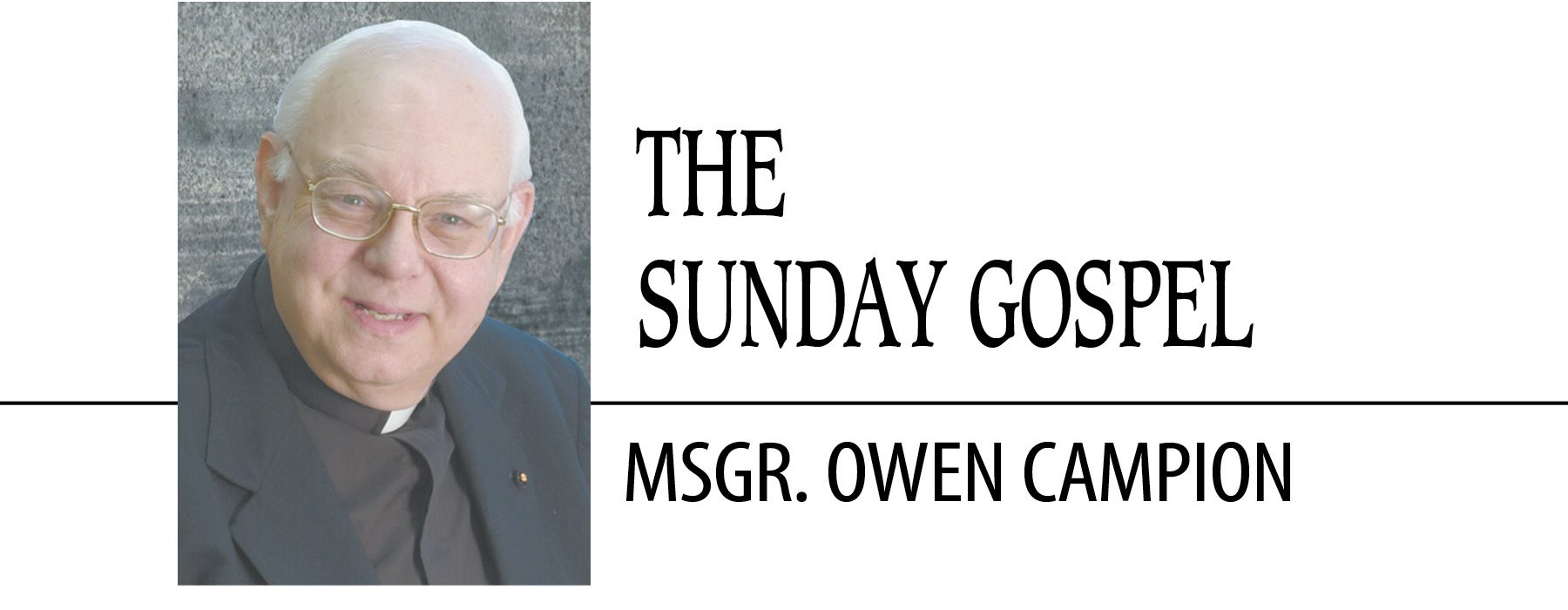September 28, 2019 // The Sunday Gospel
Self-sufficiency should not blind us to others’ needs
Twenty-Sixth Sunday in Ordinary Time
Luke 16:19-31
The Book of Amos provides this weekend’s first reading. The book itself states that it was written during the reign of King Uzziah of Judah, or between 783 and 742 B.C. It was a time of tranquility and prosperity. No wars troubled the kingdom.
Still, Amos strongly spoke against laxity in religion and morally careless living. It was not necessarily a denunciation of utter vice, but rather it condemned lukewarmness.
To be precise, chief among his concerns was the sluggishness with which people practiced their religion. All in all, Amos insisted, the situation was a sure recipe for problems and even disaster.
St. Paul’s First Epistle to Timothy supplies the second reading for this weekend’s liturgy. Last weekend’s second reading also came from First Timothy.
Timothy was an early convert to Christianity. The epistles written to him, and now contained in the New Testament, assured his place in the tradition of the Church. As his life unfolded, he became a disciple of Paul and then a Christian leader in his own right, destined to be one of the major figures in the development of Christianity. This reading calls Timothy to genuine virtue by being diligent and dedicated in following Jesus and in leading the community committed to Timothy’s pastoral care.
It was easy to be distracted from such faithfulness in the face of the glory, power and excesses in the mighty Roman Empire, to say nothing of the peril Christians faced since their religion was outlawed. To encourage Timothy, Paul cited the example of Jesus in the Lord’s trial before Pontius Pilate.
Despite the overbearing power of Rome, the reading insists that God’s justice will endure, and that Jesus will come again in triumph and vindication.
St. Luke’s Gospel furnishes the last reading, a parable, rather straightforward in its message.
A rich man is enjoying all the benefits of financial success and well-being. By contrast, Lazarus is desperately poor, yearning to have just the scraps that fall from the rich man’s table.
In time, Lazarus died. Then the rich man died. As the rich man reached the hereafter, he realized that he was then in great need, whereas Lazarus was being held close to Abraham, the holy father of the Hebrew people.
By this time, the once-rich man is desperate. He pleads with Abraham for just a drop of water to quench his thirst. The once-rich man implores Abraham to send Lazarus back to earth to warn the rich man’s brothers that they, too, will be punished unless they turn to God and forsake greed.
Abraham replies that messengers already have been sent, namely Moses and the prophets, and Moses and the prophets were ignored.
Reflection
At first glance, the readings, especially that from Luke’s Gospel, seem to present a clear message. But beneath the obvious is another, stronger lesson. It is more than a question of avoiding greed or being unjust in commercial dealings.
It is instead the lesson that Christians must judge earthly life by a standard that not often is embraced by humans. It renders everything secondary, or even irrelevant, in the process of judging life, pursuing the belief that only the things and ways of God are worthy of attention.
The story of the rich man and Lazarus is more than merely a coincidence about a person who has succeeded in the world versus a person who has not succeeded.
At the time of Jesus, many thought that earthly riches showed that God blessed the rich, whereas poverty and want indicated that a great sin somehow lay in the background of a poor person.
Jesus totally debunked this notion by offering a different perspective of life and its rewards, a new standard for living.
The best news. Delivered to your inbox.
Subscribe to our mailing list today.






